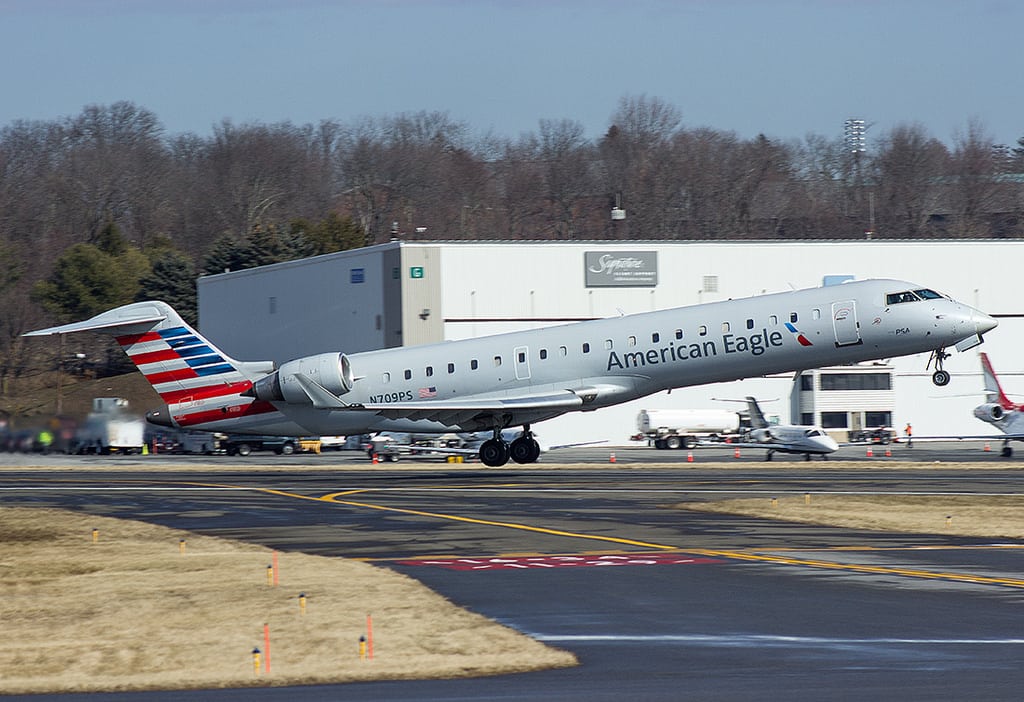Skift Take
Glitches happen and airlines lose money. But American probably could have handled last month's PSA Airlines debacle better. If it had, maybe it would have lost less money from the debacle.
When one of its regional airlines suffered computer issues last month, American Airlines generally downplayed it, saying the glitch mostly affected customers at its Charlotte hub, many of whom could be rebooked on other flights.
That may have been true, but the multi-day mishap was costly to the parent airline.
In an investor update released Wednesday morning, American said its pre-tax income for second quarter will be $35 million less than expected because one of its subsidiaries, PSA Airlines, cancelled flights because of problems with its crew scheduling system, making it difficult for the carrier to match crews with airplanes.
Over a roughly week-long period, beginning June 14, American said PSA canceled 3,000 flights, mostly in the Southeast United States. One of three regional carriers wholly-owned by American, PSA operates about 12 percent of American’s 6,700 daily flights, but since none of its jets carries more than 76 passengers, it is responsible for a smaller percentage of the parent airline’s capacity.
Revenues Troubles
The matter was not the only second quarter hiccup for the world’s largest airline. American will still report a profit when it announces earnings in about two weeks, but it may not be large as expected.
In its update, it warned investors a key revenue target will fall short of expectations because domestic yields — a rough measure of ticket prices — were lower than expected. American said its second quarter revenue per available seat mile, a measure of how much money an airline makes for each seat it flies one mile, will increase 1 to 3 percent, year-over year. Previous guidance called for an increase of 1.5 to 3.5 percent.
However, pre-tax margin is still expected to fall between 7.5 and 9.5 percent, the airline said.
Special Charges
American also told investors it will take roughly $215 million in pre-tax special charges, including $26 million to write-off the company’s rough authorities in Brazil. The United States and Brazil recently signed an Open Skies agreement, allowing any airline to fly any route, so American’s historic traffic rights are no longer valuable. United recently took a similar charge of $105 million.
Additionally, American said it will take special charges related to merger integration, fleet restructuring and a mark-to-market adjustment for its investment in China Southern Airlines.
In 2017, American paid $200 million for a roughly 2.76 percent stake in China Southern, hoping the investment would help it grow in a China, where it is weaker than its principal U.S. competitors.
The Daily Newsletter
Our daily coverage of the global travel industry. Written by editors and analysts from across Skift’s brands.
Have a confidential tip for Skift? Get in touch
Tags: airline innovation, american airlines, psa airlines
Photo credit: American will lose out on $35 million in pre-tax income because of computer system problems at its subsidy, PSA Airlines. Pictured is one of PSA's Bombardier CRJ700s. Dave Montiverdi / Flickr
